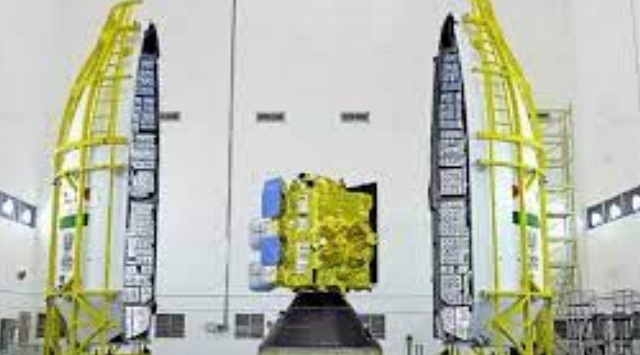Chennai: The Indian space agency ISRO will begin the countdown on Friday afternoon for the Saturday evening launch of the country’s latest weather satellite INSAT-3DS, said a senior official.
“The countdown will begin at 14.05 hours on Friday,” the official informed on condition of anonymity.
In its 16th mission, the GSLV rocket (code-named GSLV-F14) will blast off from the second launch pad at the Sriharikota rocket port in Andhra Pradesh on Saturday at 5.35 pm.
The 51.7 metre tall GSLV rocket weighing 420 tonnes at lift-off will carry India’s latest weather satellite INSAT-3DS, to place it in a Geosynchronous Transfer Orbit.
Subsequent orbit-raising manoeuvres will ensure that the satellite is positioned in a Geo-Stationary Orbit.
Earlier ISRO had said the rocket would take off at 5.30 pm but later postponed the lift off by five minutes to 5.35 pm.
The INSAT-3DS is India’s third generation meteorological satellite and is fully funded by the Ministry of Earth Sciences. It is designed for enhanced meteorological observations and monitoring of land and ocean surfaces for weather forecasting and disaster warning.
The satellite will augment the meteorological services along with the INSAT-3D and INSAT-3DR satellites that are operational at present.
Various departments under the Ministry of Earth Sciences such as the India Meteorology Department (IMD), National Centre for Medium-Range Weather Forecasting (NCMRWF), Indian Institute of Tropical Meteorology (IITM), National Institute of Ocean Technology (NIOT), Indian National Center for Ocean Information Services (INCOIS) and various other agencies and institutes will use the INSAT-3DS satellite data to provide improved weather forecasts and meteorological services.
ISRO said the primary objectives of the mission are: To monitor the Earth’s surface, carry out oceanic observations and its environment in various spectral channels of meteorological importance; to provide the vertical profile of various meteorological parameters of the atmosphere; to provide data collection and data dissemination capabilities from the data collection platforms (DCPs); and to provide satellite-aided search and rescue services.




 Ms Kalinga
Ms Kalinga